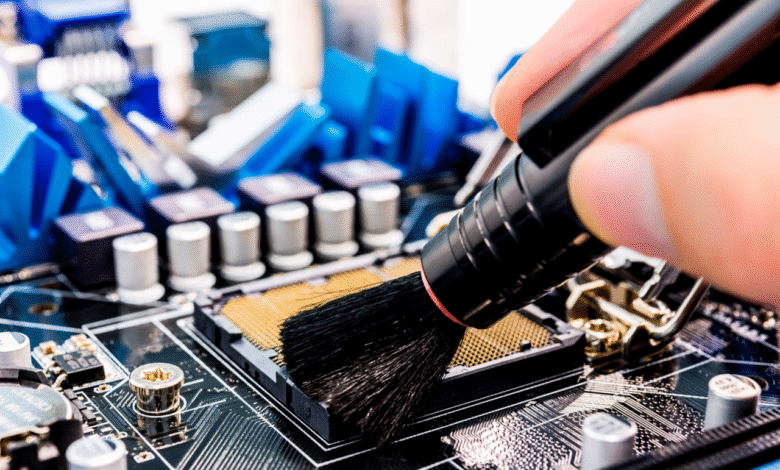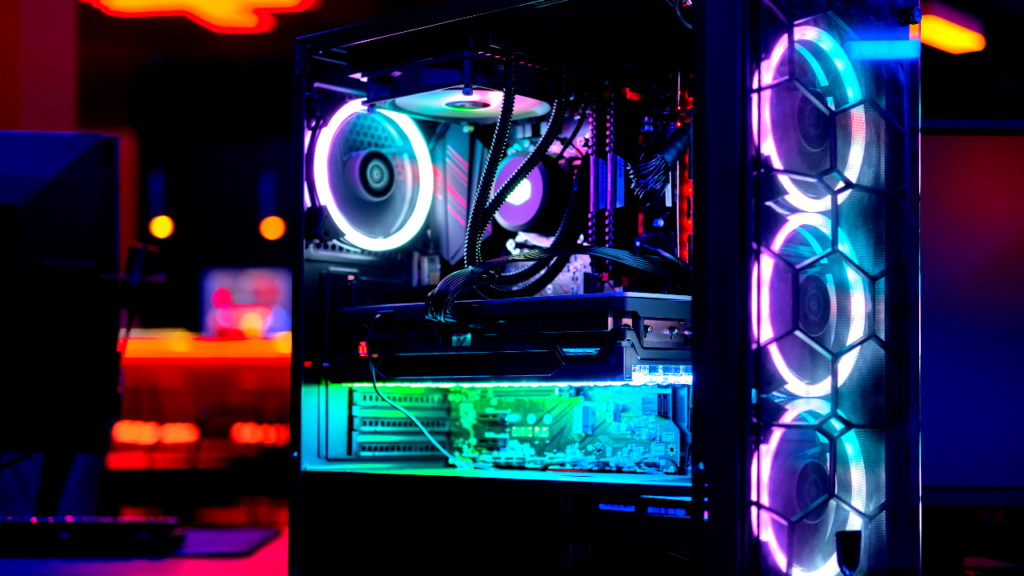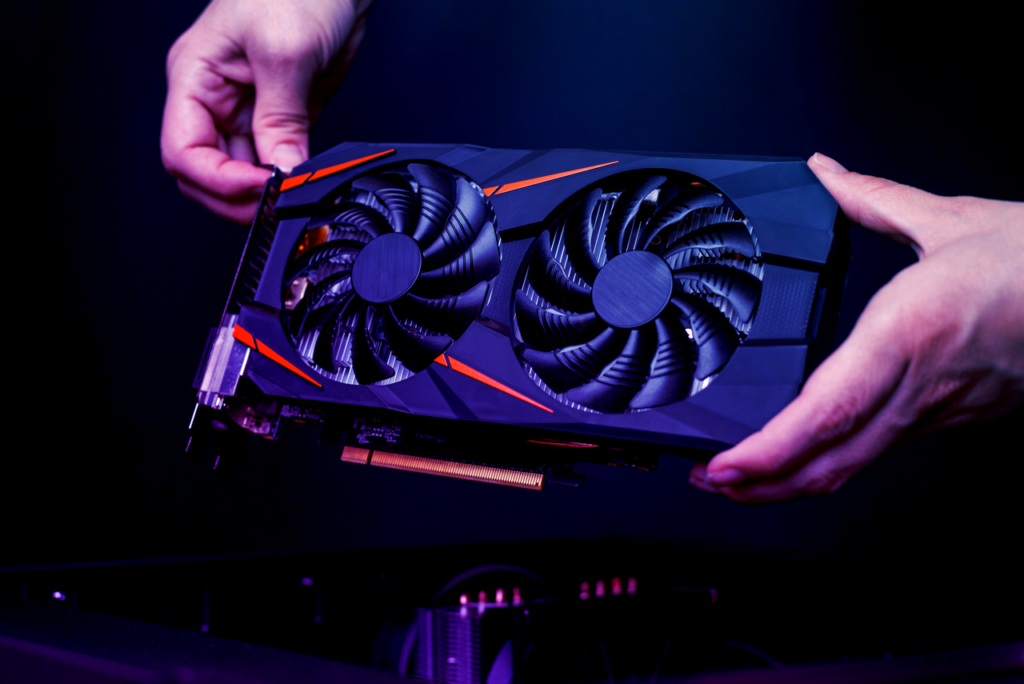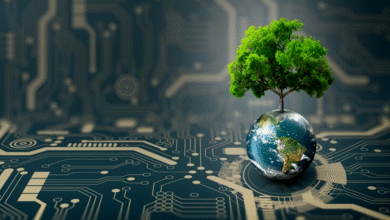
In our digital age, where computers have become an integral part of our daily lives, keeping your computer clean is crucial for optimal performance. From the exterior to the interior, both hardware and software require regular maintenance. Let’s dive into a comprehensive guide on how to clean your computer and ensure it runs smoothly.
Read More: How to Build a Gaming PC: A Step-by-Step Guide
Introduction to Clean a Computer

Importance of computer cleanliness
A clean computer is a happy computer. Regular cleaning not only enhances the aesthetics of your workspace but also plays a significant role in maintaining the longevity and efficiency of your device.
Impact on performance
Dust and dirt accumulation can lead to overheating, slowing down your computer’s performance. By cleaning your computer, you ensure it operates at its full potential.
Preparing for Cleaning
Backup important data
Before starting the cleaning process, safeguard your important data by creating backups. This prevents any accidental loss during the cleaning.
Shut down and unplug
Ensure your computer is turned off and unplugged from the power source before beginning the cleaning process to avoid any electrical hazards.
Gather cleaning supplies
Assemble the necessary cleaning supplies, including microfiber cloths, compressed air, and electronic-safe cleaning solutions.
Cleaning the Exterior
Dusting the keyboard and mouse
Use compressed air to remove dust and debris from the keyboard and mouse. Wipe surfaces with a microfiber cloth.
Wiping the monitor
Gently wipe the monitor with a microfiber cloth to remove fingerprints and dust. Avoid using harsh cleaning solutions. Cleaning ports and vents
Use compressed air to clear dust from ports and vents, ensuring proper airflow for cooling.
Cleaning the Interior
Opening the computer case
If comfortable, open the computer case following manufacturer guidelines to access internal components safely.
Using compressed air to remove dust
Blow out dust from internal components using compressed air, focusing on the processor, graphics card, and fans.
Cleaning internal components
Carefully clean internal components with electronic-safe cleaning solutions and anti-static brushes.
Software Cleanup
Running antivirus and anti-malware scans
Perform thorough scans to eliminate any potential threats and ensure a clean digital environment.
Uninstalling unnecessary programs
Remove unnecessary programs to free up storage space and improve system performance.
Organizing files and folders
Optimize file organization for easier access and a clutter-free system.
Updating Software
Operating system updates
Regularly update your operating system to benefit from security patches and improved features.
Driver updates
Ensure all hardware drivers are up-to-date to avoid compatibility issues and enhance performance.
Updating applications
Update applications for the latest features and security improvements.
Optimizing Startup Programs
Disabling unnecessary startup items
Speed up your computer’s boot time by disabling unnecessary programs that launch at startup.
Managing task manager settings
Use the task manager to monitor and manage processes, ensuring efficient resource allocation.
Improving boot time
Implement strategies to improve your computer’s startup speed for a smoother experience.
Enhancing System Performance

Checking for hardware upgrades
Evaluate the potential for hardware upgrades to meet the demands of modern software.
Upgrading RAM and storage
Consider upgrading RAM and storage capacity for improved multitasking and faster data access.
Tips for smoother performance
Explore additional tips for optimizing system performance and responsiveness.
Regular Maintenance
Scheduling routine cleanups
Establish a regular cleaning schedule to prevent dust buildup and ensure consistent performance.
Backing up data regularly
Maintain a habit of regular data backups to safeguard against unexpected data loss.
Staying vigilant against malware
Stay updated on the latest security threats and employ proactive measures to prevent malware attacks.
Troubleshooting Common Issues

Slow performance
Identify and address factors contributing to slow performance, including software and hardware issues.
Unexpected shutdowns
Troubleshoot unexpected shutdowns by examining potential causes and implementing solutions.
Addressing overheating problems
Implement cooling solutions and address ventilation issues to prevent overheating.
Conclusion on Clean a Computer
Recap of the cleaning process
Regular cleaning, both exterior and interior, coupled with software maintenance, is key to a healthy and high-performing computer.
Importance of regular computer maintenance
By incorporating regular cleaning and maintenance into your computer care routine, you can extend its lifespan and enjoy optimal performance.
Read More: How to Optimize Your Computer Graphics Card
FAQs
- How often should I clean my computer? Cleaning your computer every 3-6 months is generally sufficient, but more often if it’s in a dusty environment.
- Can I use household cleaning products? Avoid household cleaning products, as they may damage your computer. Stick to electronic-safe solutions.
- Is it necessary to open the computer case for cleaning? Opening the case allows for a more thorough clean, but it’s optional. Use compressed air for a less invasive approach.
- What should I do if my computer is still slow after cleaning? Check for background processes, upgrade hardware if needed, or consult a professional for assistance.
- Are there any risks involved in cleaning the internal components? There are risks, so only attempt if you’re comfortable. Follow manufacturer guidelines and consider professional help if uncertain.







